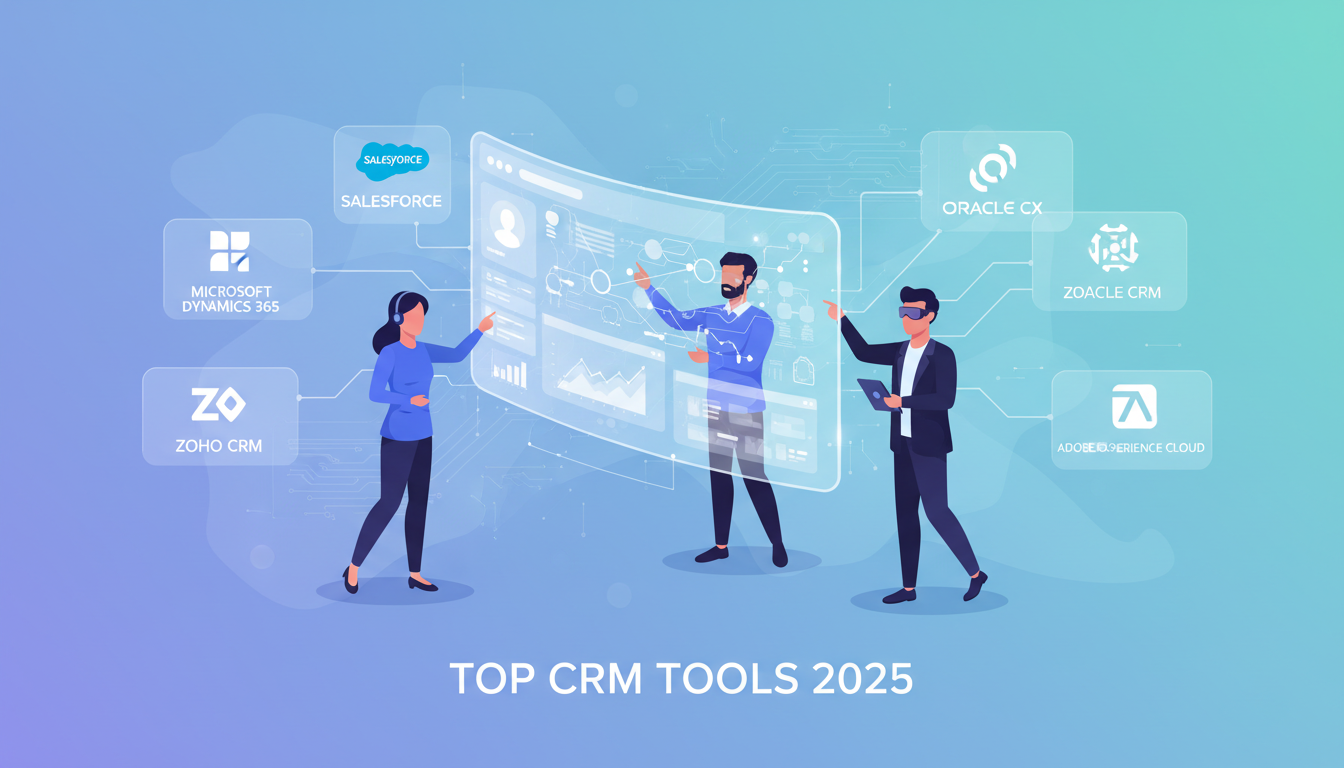Healthcare professionals (HCPs) usually follow the new devices and developments in the healthcare sector. However sometimes HCPs don’t have enough time to research these developments. At this point, you can attract HCPs attention with a successful HCP marketing. To develop a successful HCP marketing strategy you should follow some steps.
-
Identifying Target Audience
HCPs have various job groups. HCPs consist of physicians, doctors, nurses, pharmacists, nutritionists, psychologists and psychiatrists, physical therapists and medical researchers. You should choose the right group or groups to show your products, because when one group is interested in your product, the other group may not be interested in. Thanks to this, you can focus on a specific HCP group. Also, location is an important factor for identifying a target audience. You can choose a group which is near your location.
-
Developing a HCP Persona
Developing a successful HCP persona is important to better understand your target’s needs, values, behaviors, preferences and wants. You should follow some criterias about your buyer personas such as their age, their job titles, where they live, their interests and their opinions.
-
Building a Contact List
Establishing your contact list according to specialization, geography, and practice environment is the first step in creating an HCP contact list. Make use of the tools that are already available, such as professional networks and CRM systems, and look for contact information online or through medical associations and directories. Attend industry gatherings to exchange business cards and build relationships with HCPs. Directly approach potential customers, providing helpful content in return for their contact details while adhering to privacy laws. Make use of social media platforms such as Linkedin, Instagram or X to interact with experts and optimize your website with forms for subscriptions. Collaborate with Key Opinion Leaders while adhering to pertinent rules. To guarantee correctness and relevancy, update and check your contact list frequently. You may create a strong contact list of HCPs for your marketing campaigns by following these steps.
-
Creating a Related Contents
Creating high-quality contents is crucial to attracting and retaining HCP interest. Creating information that is both informative and customized is equally important. To become more knowledgeable, most healthcare professionals like learning about the newest medical advancements, therefore producing customized and timely content is essential to building your brand as a thought leader. With potential clients, this conveys authority and fosters confidence. Content doesn't only have to be blogs, it may also be specialized instructional resources like ebooks, infographics, and other digital files. It increases the likelihood that your target audience will choose to buy your equipment or pharmaceutical product over one from your rival by demonstrating your awareness of their lifestyles and pain issues.
Do you want to learn more about content marketing? Check out What is Content Marketing!
What is HCP Marketing

Healthcare professional marketing, or HCP marketing, is a multipronged strategy for influencing and involving healthcare professionals who are essential to patient care. It entails having a thorough awareness of all aspects of the healthcare ecosystem, such as the requirements of healthcare providers, the state of regulations, and medical breakthroughs.
Healthcare professionals are intended to be informed about pharmaceutical goods, medical equipment, treatments, and services by HCP marketing. This entails creating in-depth clinical and scientific material that emphasizes the advantages, safety, and effectiveness of the advertised goods. Medical publications, conferences, internet platforms, and face-to-face meetings with representatives of pharmaceutical or medical device corporations are some of the routes by which such material is distributed.
HCP marketing also involves cultivating trust and establishing connections with medical professionals. This frequently entails opening up lines of contact on a regular basis, granting access to learning materials, and presenting chances for professional growth. HCP marketers hope to establish their products as useful instruments that may raise the standard of care given by medical professionals and improve patient outcomes.
Furthermore, HCP marketing needs to adhere to compliance norms and regulatory criteria, such as those established by agencies like the European Medicines Agency (EMA) in Europe or the Food and Drug Administration (FDA) in the United States. Marketers are responsible for making sure that all product claims, fair balance, and risk disclosure are followed in their promotional materials.
In summary, HCP marketing is a nuanced and strategic approach that involves tailoring messages, delivering valuable content, building relationships, and navigating regulatory complexities to engage and influence healthcare professionals effectively. It plays a crucial role in driving awareness, adoption, and utilization of healthcare products and services within the medical community.
Do you want to learn more about marketing plans? Discover What is a Marketing Plan!
How to get started with HCP marketing
There are numerous channels and methods available to you for making your marketing apparent with digital growth. The pharmaceutical business is likewise heading toward digitalization, notwithstanding its relative slowness in comparison to other industries. Pharma businesses are facing intense competition, and as we engage healthcare providers through omnichannel approaches, it is critical to be present in the digital platforms and communication paths that healthcare professionals (HCPs) choose. If you want to make a sensation HCPs' interest and get them to convert, you need to stand out from the competition and develop creative marketing strategies.
-
Targeting the Ideal Audience for Your Campaigns
To get the most impact and efficacy out of your HCP marketing strategies, you must target the right demographic. You can customize your messaging and methods to appeal to the interests and requirements of healthcare professionals who are aligned with your campaign objectives. Examples of these professionals include physicians who specialize in a certain medical specialty or nurses who operate in specific healthcare environments. Whether it's through digital platforms, professional associations, or medical magazines, you may deliver relevant and personalized material by having a thorough understanding of the demographics, preferences, and habits of your target audience. By focusing your efforts on reaching the right healthcare professionals, you can increase engagement, build a better trust with HCPs, and drive intended actions, such as recommending your products or medicines, leading to successful outcomes for your HCP marketing campaigns.
-
Creating an Accurate HCP Persona /Identify
Compiling in-depth information about the traits, and actions of healthcare professionals (HCPs) in your target market is necessary to create an appropriate HCP persona. The first step in this approach is conducting extensive study to comprehend the various roles, specializations, practice environments, and motivations, difficulties, and decision-making processes of HCPs. You may create personas that represent various target audience segments, such as primary care physicians, oncologists, or nurse practitioners, by compiling data from sources including market research, trade publications, and professional associations. The demographic data, work responsibilities, clinical interests, communication preferences, and any other pertinent details that affect how they interact with healthcare goods or services should all be included in these personas. By developing realistic HCP personas, you can customize your marketing tactics and messaging to appeal to particular medical community segments and successfully engage them. This will help your HCP marketing activities succeed.
-
Targeting the Ideal Audience for Your Campaigns
A key component of any successful marketing effort is identifying the optimum targeting the ideal audience. You may effectively reach and resonate with your target audience by knowing their demographics, interests, behaviors, and requirements and then tailoring your messaging and strategy accordingly. Whether your target audience consists of consumers, healthcare professionals (HCPs), or other stakeholders, creating personas and segments that support your marketing goals requires careful research and analysis. This enables you to maximize engagement and encourage desired behaviors by delivering relevant and tailored content across the most suitable channels. You may maximize the efficacy and efficiency of your efforts and ultimately achieve better results and a higher return on investment by focusing on the right audience.
-
Collecting & Maintaining Your Contact Lists
Effective healthcare professional (HCP) marketing initiatives require the collection and upkeep of contact lists. To obtain precise contact details for your intended audience, start by locating trustworthy data sources, such as trade publications, associations, and networking gatherings. Make sure all applicable laws, like HIPAA and GDPR, are followed, and get permission before communicating with HCPs as needed. To keep your contact lists current and relevant, make sure they are updated on a regular basis. Keep an eye out for changes in contact information, preferences, and professional standing. To properly organize and manage your contact lists and facilitate segmentation and personalized communication, use CRM systems or specialized database management solutions. By investing in the collection and maintenance of high-quality contact lists, you can enhance the effectiveness of your HCP marketing efforts and foster stronger relationships with healthcare professionals.
-
Producing Personalized & Relevant Content
Creating tailored and pertinent information for healthcare professionals (HCPs) is crucial to successfully influencing and involving this audience. Start by conducting in-depth research and data analysis to fully grasp the unique requirements, passions, and difficulties faced by HCPs within your target audience. Provide content such as clinical research findings, treatment recommendations, case studies, or instructional materials specific to their specialty or practice area—that meets these demands and offers insightful information. Make use of a range of formats, such as webinars, infographics, videos, and articles, to accommodate various communication channels and learning styles. To increase relevance and engagement, include personalized aspects, such as referring to HCPs by name or mentioning their particular interests or problems.
Do you want to find the perfect social media agency for your brand? Check out How to Find a Social Media Marketing Agency for Your Business! Discover Best Social Media Agencies with just a a click and see the details of Best Social Media Agencies in Liverpool!
The Impact of HCP Multichannel Marketing
The way pharmaceutical companies and medical device makers interact with this important audience has been significantly impacted by the introduction of multichannel marketing methods among healthcare professionals (HCPs). Delivering customized messages and content to healthcare professionals (HCPs) over a variety of communication channels, including email, social media, websites, webinars, and in-person contacts, is known as multichannel marketing. With this strategy, marketers may target HCPs through the channels and formats that they prefer, while also taking into account their varied preferences and habits.
Personalized and pertinent information for HCPs based on their hobbies, specializations, and practice locations is one of the main advantages of HCP multichannel marketing. Marketers can increase engagement and efficacy by customizing their messaging and materials to resonate with particular HCP personas by utilizing data analytics and segmentation approaches. Pharmaceutical companies and medical device manufacturers can provide HCPs with timely and valuable information, including clinical trial data, product updates, educational resources, and treatment guidelines, thanks to this personalized approach. This empowers HCPs to make informed decisions for their patients.
Additionally, HCP multichannel marketing helps pharmaceutical firms and healthcare professionals establish and maintain relationships, which gradually promotes trust and cooperation. Marketers may position their brands as reliable partners in patient care by establishing credibility and thought leadership within the medical community by being consistently present across numerous platforms. By keeping pharmaceutical corporations and medical device makers at the forefront of healthcare professionals' minds, they are able to influence prescribing practices and increase brand awareness and loyalty.
To sum up, the implementation of multichannel marketing techniques has transformed the way pharmaceutical businesses and medical device makers interact with healthcare professionals (HCPs) by offering tailored, pertinent, and prompt communication over several channels. HCP multichannel marketing has developed into a potent instrument for influencing prescription patterns, raising brand recognition, and eventually enhancing patient care through the provision of insightful content, the development of long-term partnerships, and the use of data-driven insights.
Check out Marketing Strategy of Tesla to learn about marketing strategies!
3+ Most successful HCP campaigns
-
New York Presbyterian Hospital
One of the biggest and most prominent hospitals in the USA is New York-Presbyterian Hospital. It is renowned for giving its populations access to top-notch healthcare through the provision of specialized medical services, research, individual patient care, and technological advancements.
This dedication was demonstrated via the "Patient Stories" series, which succinctly summed up the hospital's patient-centered and compassionate philosophy. The campaign was successful in igniting an emotional response in viewers and highlighting the hospital's dedication to offering top-notch medical treatment by presenting real-life accounts and experiences of patients who got care there.
We can learn from this that sharing personal narratives can provide hope, raise awareness, and highlight positive impact.
-
United Healthcare We Dare You Campaign
In the US, UnitedHealthcare is a well-known provider of health insurance. As a division of the broader UnitedHealth Group, it provides a comprehensive array of health insurance plans and services with the aim of enhancing accessibility to high-quality healthcare and advancing the health and welfare of individuals, families, and enterprises.
The "We Dare You" campaign by UnitedHealthcare was aimed at people who desired to enhance their overall health and wellness. The goal of the campaign was to inspire individuals to take up manageable tasks in order to improve their general well-being and way of life. The We Dare You campaign was created as an enjoyable and engaging endeavor that tasked users with accomplishing everyday health-related goals, such increasing their water intake, getting enough sleep, or fitting exercise into their schedules.
-
Zepp Clarity
Zepp Health's Zepp Clarity subsidiary is a well-known global leader in smart wearable health technologies. Zepp Clarity employs hearing technology to empower fitness, health, and overall well-being. They collaborated with us to expand their user base and introduce Zepp Clarity One, their flagship product, into the American market.
In order to do this, we created a new digital marketing funnel that makes use of a cross-channel marketing mix, carried out CRO and UX/UI upgrades for the website, and established a persona-specific acquisition approach.
We saw a 67% QoQ drop in cost per lead, a 193% QoQ rise in ROAS, and a 766% QoQ increase in Zepp Clarity One purchases as a consequence of this campaign.
FAQ
How can HCPs stay updated on new medical devices and developments?
HCPs can stay updated on new medical devices and developments by subscribing to medical journals, attending industry conferences, and participating in professional associations. Leveraging online platforms like webinars and virtual conferences can also help them stay informed. Additionally, following reputable medical blogs and utilizing social media channels like LinkedIn for professional updates can be beneficial. Engaging in continuous education programs and collaborating with key opinion leaders in the field are other effective strategies. Lastly, signing up for newsletters from trusted medical device companies ensures they receive the latest information directly.
What are the key components of a successful HCP marketing strategy?
A successful HCP marketing strategy includes identifying the target audience, developing detailed HCP personas, and building a comprehensive contact list. Creating high-quality, relevant content tailored to the specific needs and interests of HCPs is crucial. Utilizing multichannel marketing approaches ensures that the messages reach HCPs through their preferred communication channels. Additionally, maintaining compliance with regulatory standards and fostering ongoing relationships through regular communication and educational opportunities are essential components. Regularly updating the contact list and continuously refining the strategy based on feedback and engagement metrics also contribute to success.
How can personalized content improve HCP engagement?
Personalized content can significantly improve HCP engagement by addressing their specific interests, needs, and pain points. When content is tailored to their specialty and practice area, it becomes more relevant and valuable, increasing the likelihood of interaction. Personalization can include using HCPs' names, referencing their specific challenges, and providing solutions that directly relate to their work. By offering customized clinical research findings, case studies, and treatment recommendations, marketers can position their brand as a trusted resource. This targeted approach fosters trust and encourages HCPs to engage more deeply with the provided content.
What are the benefits of using social media for HCP marketing?
Using social media for HCP marketing offers several benefits, including increased reach and engagement with a broader audience. Platforms like LinkedIn, Twitter, and Instagram provide opportunities for real-time interaction and networking with healthcare professionals. Social media allows for the dissemination of up-to-date information, educational content, and industry news, helping to establish thought leadership. Additionally, it offers targeted advertising capabilities to reach specific HCP groups based on their professional interests and behaviors. Engaging content on social media can also foster a sense of community and facilitate discussions among HCPs, enhancing their connection with the brand.
How can compliance with regulatory standards impact HCP marketing?
Compliance with regulatory standards is crucial in HCP marketing to ensure that all promotional materials are accurate, balanced, and transparent. Adhering to guidelines from regulatory bodies like the FDA or EMA helps maintain credibility and trust with healthcare professionals. It prevents legal issues and potential fines associated with non-compliance, protecting the brand's reputation. Ensuring that all claims about medical devices or pharmaceuticals are supported by robust evidence fosters trust among HCPs. Additionally, compliance with privacy laws, such as HIPAA and GDPR, is essential when collecting and managing HCP contact information, ensuring ethical and lawful marketing practices.
Now that you have understood the importance of marketing in HCP sector, but you need the perfect PR agency for your brand? Discover the Best Pr Agencies! See the details of Best Pr Agencies in Dublin!
"Elevate your brand's digital presence. Start your search on Edvido."

















